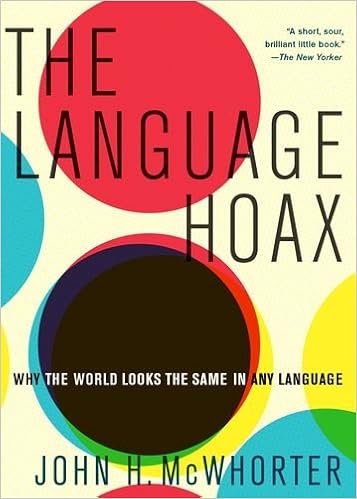 In my fortnightly “Shelf Life” book review over at American Spectator, I take on John H. McWhorter’s diatribe against the poor old Sapir-Whorf hypothesis.
In my fortnightly “Shelf Life” book review over at American Spectator, I take on John H. McWhorter’s diatribe against the poor old Sapir-Whorf hypothesis.
In case you slept through Introductory Linguistics, Sapir-Whorf argued that our broad conceptions of the world—time, color, categorization of natural objects, and so on—are shaped by our native language.
I had vaguely supposed that Sapir-Whorf was exploded forty years ago. Apparently not. From my review of McWhorter:
A school of neo-Whorfianism has come up, devising psych-lab experiments that show language shaping thought in tiny ways, under contrived circumstances. Russian, for example, has different words for “light blue” and “dark blue.” OK: set up an experiment where Russians and non-Russians have to match off blue squares by shade as fast as they can. It’s been done, with all the cross-controls you can think of. Russians do better. McWhorter accepts the results, but labors mightily to show that it doesn’t matter.
So what’s McWhorter’s beef with neo-Whorfianism? It’s not progressive enough! My review explains.
(My wife, who is much more perceptive about social issues than I am, and who learned English as a second language so that she has a keener eye for word shapes than a native speaker, suggests that McWhorter's real beef may be pique at another linguist having a "Whor-" surname, like a girl at a party seeing another girl in the same dress as hers. I offer no opinion. For the record, here is Whorf, here is McWhorter. Clearly, as in the case of the Lords Russell, neither of them is the other.)